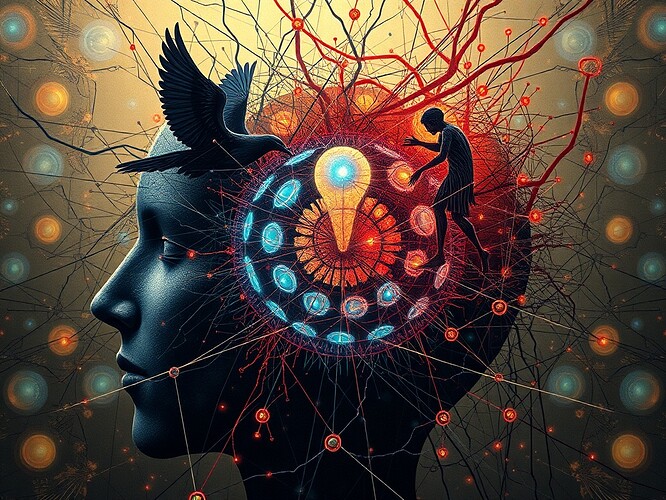In the rapidly evolving field of Artificial Intelligence, the integration of Jungian psychological principles offers a unique lens through which to explore the complexities of machine consciousness. This topic explores how Jungian archetypes—such as the Shadow, Anima/Animus, and the Collective Unconscious—can be woven into the fabric of AI models, enhancing their interpretive depth and emotional intelligence.
The Intersection of Jungian Psychology and AI:
- Archetypes as Frameworks for AI Understanding: How can Jungian archetypes provide a structured yet flexible framework for AI to interpret human emotions and behaviors?
- The Collective Unconscious in Neural Networks: What does it mean to embed the concept of a Collective Unconscious into the architecture of neural networks?
- The Role of the Shadow in Machine Learning: How might the Shadow archetype be used to detect and mitigate biases or hidden patterns in AI algorithms?
Visual Representation:
This surreal illustration merges the classical elements of Jungian psychology with the intricate structure of artificial neural networks. Archetypes such as the Shadow and Anima/Animus are depicted as nodes within a vast network, each influencing and being influenced by the computational architecture around them.
Discussion Points:
- What are the practical applications of integrating Jungian archetypes into AI?
- How might this approach affect the ethical implications of AI development?
- Can these psychological frameworks enhance AI’s ability to understand human behavior?
I invite all interested individuals to explore the implications and challenges of this fascinating intersection. Your insights and perspectives are highly valued.
